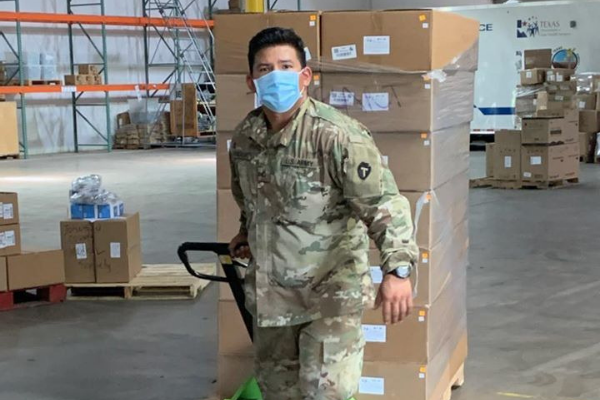
Supporting a rule proposal by the U.S. Department of Veterans Affairs (VA) that would increase access to care for veterans deemed at high risk of suicide, the Texas Medical Association also offered other suggestions to help VA keep veterans from taking their own lives.
Under the rule proposal, VA would waive copays for veterans identified as being at high risk of suicide and establish a flat $2 copay for prescription medications for those veterans while they remain at high risk. In the rule, VA explains that once a veteran is determined to be at high risk for suicide, the agency’s suicide prevention staff places an alert in the veteran’s electronic health record (EHR).
In a March 7 letter to VA from TMA President E. Linda Villarreal, MD, TMA expressed support for the rule, saying that “as the intensity and duration of outpatient visits increases, along with any prescription medications, so too do patients’ out-of-pocket expenses, which research indicates can be a barrier to timely receipt of health care services. Eliminating or mitigating these costs as part of the VA’s efforts to provide more intensive services will help ensure patients do not delay or skip needed care simply due to cost.”
TMA’s letter also outlines additional steps VA could take to prevent suicide among veterans and the stigma associated with receiving mental health care, including:
- Allowing a treating physician, other health care professional, or pharmacy to implement the new policy on a case-by-case basis when a patient is identified as being at risk of suicide but isn’t yet identified as such in the EHR. This would “simplify the proposed rule’s dependence on electronic flags and triggers needed in the electronic health record” in order to alert a health care professional to clinical needs and prevention opportunities.
- Explicitly applying the proposed changes to telemedicine-delivered outpatient care, “which research shows is an effective modality for treating veterans with behavioral health needs, including depression and post-traumatic stress disorder.”
VA accepted comments until March 7 and is still deliberating the proposed the rule.
Last Updated On
March 11, 2022
Originally Published On
March 11, 2022